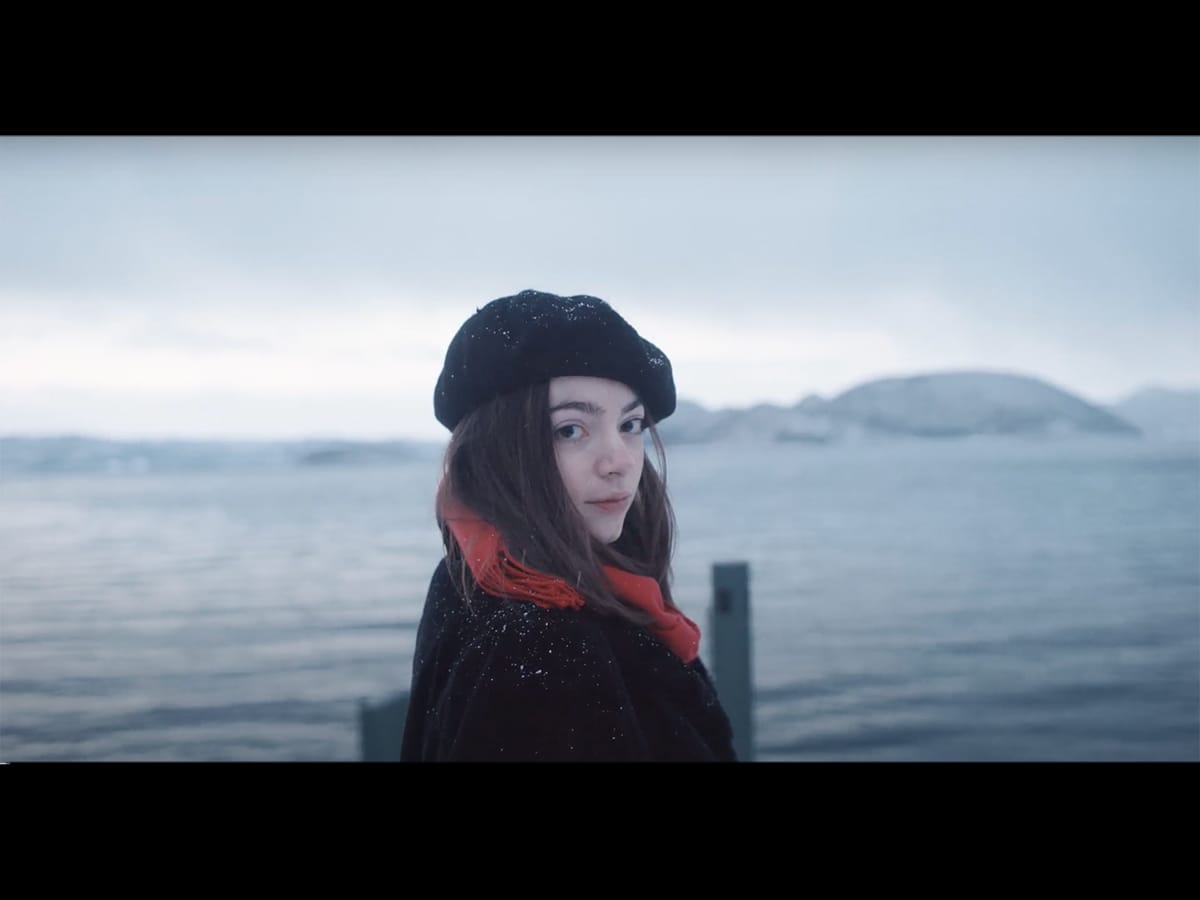
© Des Quatre / © Jeremy Rubier - image reproduced with permission
The White Country unveiled: Interview with team behind unconventional Hokkaido tourism video
- Tags:
- Benoît Piquet / Hokkaido / Hokkaido: The White Country / Jeremy Rubier / Klara Blanc / Promotional Video / Tourism
Related Article
-
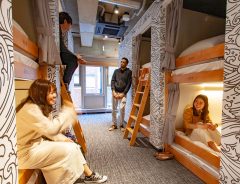
Tokyo hostel ingeniously offers open-dated “post-pandemic” pre-purchase plan
-
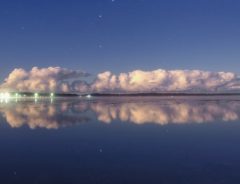
Photographer’s shot of “The Big Dipper floating on a lake” has many in love with Hokkaido scenery
-
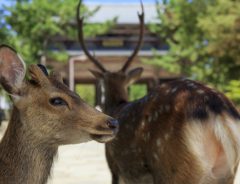
Nara’s Famous Deer Are Begging Travelers To Stay In The Area
-
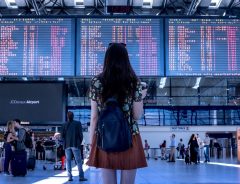
Japan must look to the medical industry to save its flat-lining tourism industry!
-
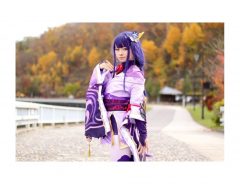
A ship only for cosplayers: Cosplay party event at Toyako Onsen this spring in Hokkaido, Japan
-
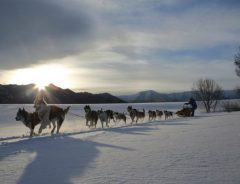
Hokkaido Sled Dogs Build Trust with Their Snow Tracks


"I think I found myself in this land"
Last month, the Hokkaido Tourism Organization unveiled a new video on their official website, Good Day Hokkaido.
The other videos posted by the Organization are all visually appealing in their own way, featuring the pristine natural beauty of Japan's northernmost region and some of the adventures you can experience.
However, this new video, entitled "Hokkaido: The White Country," immediately feels different. Not as glossy, sunny, and postcard-perfect, it conveys a more rough and unpolished side of Hokkaido, still as majestic and awe-inspiring, but real and very personal.
Reproduced with permission from © Des Quatre / © Jeremy Rubier
And this is really where it shines. Instead of showing us random groups of foreigners generically enjoying themselves, it takes a very personal approach, following the journey of a foreign traveler discovering Hokkaido... and discovering herself at the same time.
The film is passionately directed by and enhanced through music composed by the talented Jeremy Rubier, a French-born director, cinematographer, videographer, editor and composer who travels the world making documentaries, movies and music videos. He is known for short films The Interview (Best Director, Fantasia Film Festival, 2015), Ratri (2019) and Sayo (2020). Based in Tokyo, he is the founder of DMBZ and his clients range from National Geographic to FILA.
The film is produced by Benoît Piquet, CEO of creative agency Des Quatre with offices in Paris and Tokyo, as well as writer and editor contributing to Louis Vuitton City Guide, Condé Nast, Ideat, and more.
In the role of the traveler is the Paris-born and Tokyo-based Klara Blanc, Creative Planner and Producer at Japanese creative agency monopo, who also models and enjoys photography.
Here is Jeremy's director's cut of the film:
The White Country (director cut) from Jeremy Rubier on Vimeo.
Promotional video for the Hokkaido Tourism Organization
Cast : Klara Blanc
Director / DOP/Editor/Music : Jeremy Rubier,
B Camera : Will Kyaw
Drone operators : Tatsuya Aoyama, Kazuya Tsutsui, Keitaro Miura (Soracame Hokkaido, )
Production Manager : Hidekazu Yoshizawa
Coordinator : Keiko Kawabata
Voice-over : Kyla Nichole Nelson,
Producer : Benoît Piquet (Des Quatre Tokyo)
Production : Des Quatre
Interview with the team
We had an opportunity to interview producer Benoît Piquet, director Jeremy Rubier and Klara Blanc who played the traveler in the video.
Benoît Piquet (Producer / Des Quatre Tokyo)
grape Japan (gJ): The video is quite different from the usual tourism videos one sees in Japan. It seems to be just as much about a personal journey as it is about discovering a new place. What was your concept for the video?
Benoît Piquet: It is a journey and at the same time, it's a quest. The young woman we follow in the movie discovers Hokkaido, she is fascinated by the beauty of the landscapes, its variety, and by the kindness of the people she meets. From there comes her desire, almost a need to keep track of all this by taking photos, writing in her notebook.
Reproduced with permission from © Des Quatre / © Jeremy Rubier
My partner in Des Quatre and I bring a great place to story-telling. I come from the print media, he used to write for TV shows for a long time. Maybe that's why we have this taste for narrative. Compared to other films of the genre, what we wanted is to avoid the compilation of beautiful images, a movie without a soul. We also chose Jeremy for this reason: he has this capacity to generate emotion, which is a rare quality. And then there are the images, they speak for themselves.
Reproduced with permission from © Des Quatre / © Jeremy Rubier
gJ: How did you choose the locations?
Benoît Piquet: Regarding the locations, their choice was made in agreement with the client and our local partners. For practical reasons, we limited ourselves to a single part of the island. The idea was to have a variety of places: old buildings but also a contemporary ryokan, the sea and the mountains, urban things too. And of course the snow everywhere, that "white" that gives the film its title. We're waiting for a new film, the "green" version of "The White Country," but it's still a little too early to talk about it...
Reproduced with permission from © Des Quatre / © Jeremy Rubier
Jeremy Rubier (Director / DMBZ)
gJ: In your explanation of your excellent video on Toyooka, you wrote: "I have this terrible feeling that an entire generation of viewers out there are discovering places and people through the superficial eyes of irresponsible videographers. I want to change this trend." How did this sense of mission motivate you and how was it reflected in "Hokkaido: The White Country"?
Jeremy Rubier: To be perfectly honest with you, I believe that my mission is still not achieved with “The White Country.” Yes, we feature culture and dig deeper into Hokkaido’s landscape, but my goal is to go even deeper and to focus only on the locals' lives to push travelers to really go for the culture instead of the popular “Instagram” spots. Also, giving some insight into the local history is essential to me in order for people to understand where they are, why the food tastes that way, etc. That’s what I’m fighting for, and my upcoming personal projects will hopefully go in this direction.
Reproduced with permission from © Des Quatre / © Jeremy Rubier
Also, the quote you took from this 2-year old interview was in reference to the suicide forest video of Logan Paul that put him under fire. I was really tired of Vloggers spoiling all those wonderful places through meaningless videos, and my vision has always been to create films that represent my sensitivity toward a place and its people and to tease it instead of showing it explicitly. I’m trying to create a sense of wonder that would make people research those places and think: "Why not go there?" In this sense, I’m really proud of “The White Country.”
Reproduced with permission from © Des Quatre / © Jeremy Rubier
gJ: You not only directed but also composed original music for the video. Was this a challenge or did it make it easier to achieve the result you wanted?
Jeremy Rubier: To me, images and sounds are complementary in my production, and I usually edit in parallel to composing music (I use mornings to edit images, afternoons to create music). Images create music in my head, and music creates narration. It’s never a challenge to compose music, only a pleasure. I feel blessed that clients usually accept it without a complaint. I’m not a composer per se in the sense that music is a pure expression of art for me, so I refuse any feedback on it. If clients are not happy with it, they can go for generic rights-free music. But it has never happened so far (laughs)
Klara Blanc (Cast)
gJ: "How did you prepare for your role?
Luckily enough it was not a very complicated part for me. A foreigner discovering and being amazed by the beauty of Japan is exactly who I am, so I didn’t have to do a lot of very special acting per se! We did meet with the producer and director before the shoot to discuss what they had in mind, and they showed me references and mood-boards so I could understand what they were looking for. We all bonded quite fast as well so it was very easy to work together and follow the lead of the director and the DOP! I am extremely proud of the result, not only because it turned out amazing, but because promoting Japan is the kind of work that has the most meaning to me.
Reproduced with permission from © Des Quatre / © Jeremy Rubier
gJ: What is your favorite moment in the video?
I love how Jeremy portrayed my interactions with the people of Hokkaido. You can really feel on the video how everyone was so welcoming and it brings a lot of warmth and emotion to the video. The landscapes are absolutely breathtaking, but the scenes with the people are what give the video all its charm.
Reproduced with permission from © Des Quatre / © Jeremy Rubier
gJ: From your posts on social media while you were on location, it's clear that your appreciation of the locations you visited was genuine. If you could only recommend one place in Hokkaido, which one would it be?"
Lake Tōya, in the morning, without hesitation. The lights of the rising sun were unreal. I honestly think I have never seen something as beautiful in my entire life!